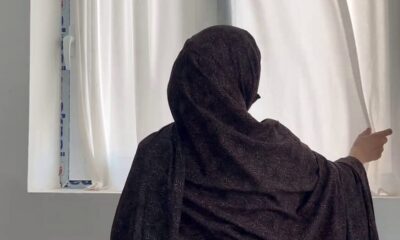Latest News
Anas says Haqqani Network never existed, that it was pure ‘propaganda’

Anas Haqqani said this week that the Haqqani Network never existed and that when he was arrested in Qatar, he had been a harmless student on holiday.
In 2014, when he was 20, Haqqani was arrested in Qatar, tried in Kabul and sentenced to death.
According information obtained by Der Spiegel, the only reason he wasn’t ultimately executed was because China intervened with the government in Kabul at the request of Pakistan. In the end, Anas Haqqani was freed in a prisoner exchange.
Speaking to Der Spiegal this week, in a rare interview, 28-year-old Haqqani said: “The so-called Haqqani network that the West keeps talking about never existed. This is pure propaganda by our enemies.
“And I was a harmless religious student in his young twenties. So, please distinguish between theoretical support for certain goals and practical action. Of course, like most Afghans, I wanted to liberate our country from occupation so that we could live independently and in dignity, peace and prosperity, in an independent state.”
During the 20-year-war in Afghanistan, prior to the Islamic Emirate of Afghanistan take over in August last year, the Haqqani network was alleged to have planned some of the most serious attacks in Afghanistan from Pakistan.
Haqqani told Der Spiegel that he spent the first years of his life in Wazir Akhbar Khan in Kabul before his family, including his father Jalaluddin Haqqani, fled to Miranshah in Waziristan in Pakistan.
He said contrary to popular belief, his father never invited Osama bin Laden to Afghanistan but stated they had known each other from the war against the Soviet Union.
He reiterated that the Haqqanis had nothing to do with many of the attacks they were blamed for and said while both sides did fight “I myself never fought”.
On being arrested in Qatar, Haqqani said: “In 2014, I was arrested in Qatar on behalf of the then Kabul government and extradited to Afghanistan. This happened completely illegally.
“I was kept in solitary confinement for years in a tiny cell, first in an intelligence prison, then in Bagram. That was against all the laws and rules that prevailed in that country at that time as well.”
“I was really innocent, a young religious student in my eighth year. I was only on holiday in Qatar. There, I visited friends and relatives who had just been released from Guantanamo.
“All the accusations that were made against me at the time in these court proceedings are false.”
He also said: “Please, we did not choose this war. It was forced upon us. I hope that we will never have to suffer these things we suffered during those years again.”
On the general amnesty, Haqqani said: “The amnesty applies to everyone, without exception, including the armed opposition. The head of the government of the Islamic Emirate of Afghanistan, Emir Akhundzada Haibatullah, has ordered this. We therefore call on all Afghans to return to their home country.
“The leadership of the Emirate is very serious about the amnesty. Action will be taken against anyone who violates this general amnesty. They will be prosecuted and severely punished,” he said, adding that “the Emir has ordered the establishment of military courts. If you know of any examples of unjust persecution, please report them to us. There must be no revenge or reprisals against the representatives of the previous government.”
Haqqani also acknowledged that the Shia minority has long been targeted by extreme elements throughout the Middle East and Afghanistan. “The position of the Islamic Emirate against these elements is crystal clear:
“There is no truth to the allegations of the oppression of the Hazaras by the current government. Our government is very serious about any harassment or harm toward our Hazara brothers. Our government is not perfect. After so many years of war, there are problems between individuals. There are old scores that have been settled, family disputes.
“But the main reason why many people leave is hardship. The economic disaster in Afghanistan is again a consequence of the U.S. sanctions. We are not responsible for that, but rather the international community is, the Americans are. This is tantamount to the collective punishment of our people. Why doesn’t the international community cooperate with us?”
He also said that during negotiations in Doha, the Germans played a particularly positive role in helping the IEA reach a peaceful solution, especially the German envoy Markus Potzel.
“Therefore, we expect the Germans to remain engaged and to renew our relationship with the usual bilateral strength. And we expect the Germans to take a bold step and to overlook small problems in order to improve relations.
In conclusion he said: “Things take time. And please tell the Germans in your home country that they should not always worry about women’s problems, but also about men’s rights. Men suffer, too, and they make up more than half of the population, after all.”
Latest News
UNAMA holds new round of Working Group meetings on counter-narcotics and private sector
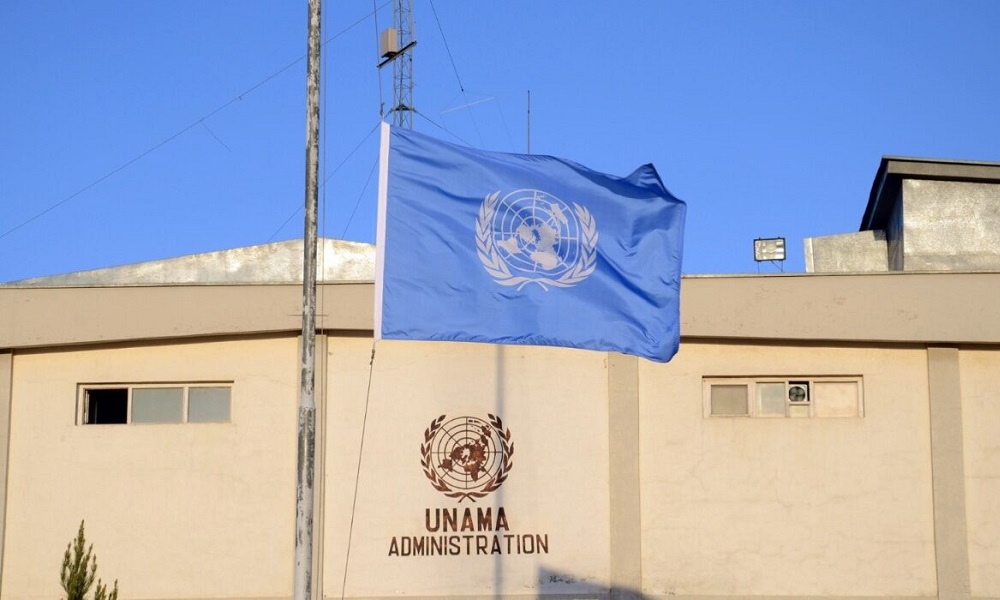
The United Nations Assistance Mission in Afghanistan (UNAMA) has convened a new round of Doha Process Working Group meetings focusing on counter-narcotics and private sector development.
The meetings, held in Kabul on February 3 and 9, brought together representatives of UN member states and international organizations, officials of the Islamic Emirate, and subject-matter experts.
According to UNAMA, discussions in the counter-narcotics working group centered on efforts by Islamic Emirate authorities and the international community to support alternative livelihoods for Afghans previously dependent on poppy cultivation and the illicit opium trade. Participants also reviewed drug-use prevention and treatment initiatives, as well as law-enforcement measures to curb narcotics production and trafficking.
The private sector working group focused on job creation and entrepreneurship, with particular attention to women’s participation in the private sector, market integration, access to finance, and the development of private banking and financial infrastructure.
UNAMA said both working groups identified priority areas for enhanced engagement and explored more effective and sustainable approaches to supporting Afghan men and women. Participants also examined the linkages between the two areas, noting that private sector development is a key source of livelihoods, while counter-narcotics efforts contribute to Afghanistan’s economic and social stability.
The working groups were established following the third Meeting of Special Envoys held in Doha, Qatar, in June and July 2024, in line with recommendations of the Independent Assessment endorsed by the UN Security Council. The process aims to promote more coherent, coordinated, and structured engagement with Afghanistan’s de facto authorities for the benefit of the Afghan people.
UNAMA added that stakeholders engage in the working groups on an ongoing basis, with full-format meetings convened periodically. Since their establishment, the groups have improved information-sharing, helped mobilize additional resources, and facilitated expert exchanges to strengthen support for the Afghan people.
Latest News
Economic Commission approves national policy for development of agriculture

At a regular meeting of the Economic Commission chaired by Mullah Abdul Ghani Baradar, Deputy Prime Minister for Economic Affairs, the National Policy for the Development of the Agriculture and Livestock Sector was approved.
According to a statement from the deputy PM’s office, the key objectives of the policy include the mechanization of the agriculture and livestock sector; development of agricultural, irrigation, and livestock research and extension systems; management of irrigation systems; support for investment in these sectors; and ensuring public access to high-quality agricultural and animal products.
During the same meeting, the development plan for the fish farming sector was also approved.
Under this plan, through private sector investment, 7,700 small, medium, and large fish production and farming facilities will be established on 6,500 hectares of land in various parts of the country.
The statement added that the implementation of this plan will create direct employment opportunities for 50,000 people and indirect employment for 250,000 others.
Latest News
Afghan authorities prevent three forced marriages in Balkh, Kunar, and Parwan
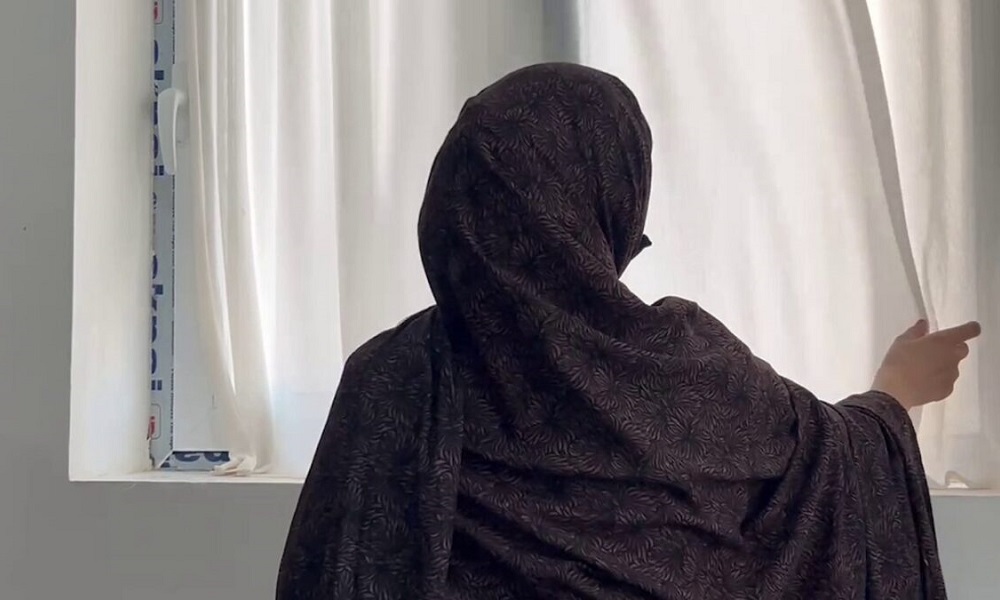
Officials from Afghanistan’s Ministry for Virtue and Vice successfully intervened to stop three cases of forced marriage in the provinces of Balkh, Kunar, and Parwan, protecting women’s rights under Islamic law.
The cases involved families attempting to marry off their daughters against their will. After registering and reviewing the complaints, ministry officials acted swiftly to halt the marriages.
The families were summoned and advised on the importance of respecting women’s rights and the freedom to choose a spouse. Following the intervention, they pledged that all future marriages of their daughters would occur only with the women’s full consent.
The ministry said the actions reflect its ongoing commitment to safeguarding women’s rights and enforcing Islamic principles across Afghanistan.
-

 Latest News3 days ago
Latest News3 days agoAfghanistan to grant one- to ten-year residency to foreign investors
-

 Sport4 days ago
Sport4 days agoIndonesia shock Japan to reach historic AFC Futsal Asian Cup final
-

 Sport3 days ago
Sport3 days agoIran clinch AFC Futsal Asian Cup 2026 in penalty shootout thriller
-

 Latest News3 days ago
Latest News3 days agoAfghanistan says Pakistan is shifting blame for its own security failures
-

 International Sports2 days ago
International Sports2 days agoWinter Olympics gain momentum as medal table takes shape
-

 Latest News3 days ago
Latest News3 days agoTraffic police receive new cars
-
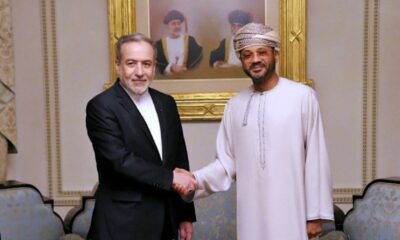
 Regional4 days ago
Regional4 days agoIran’s FM calls Oman-mediated talks with US ‘good start’
-
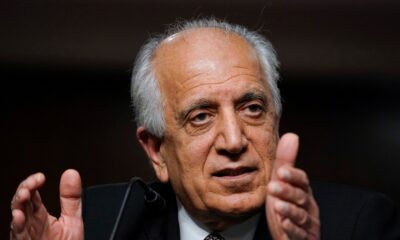
 Latest News4 days ago
Latest News4 days agoCentral Asian leaders are urging Pakistan to improve Afghanistan policies, says Khalilzad






